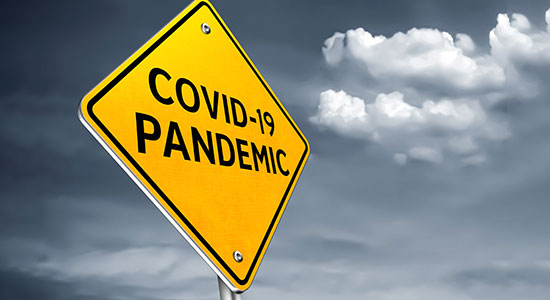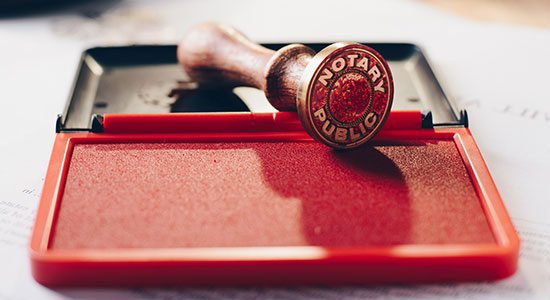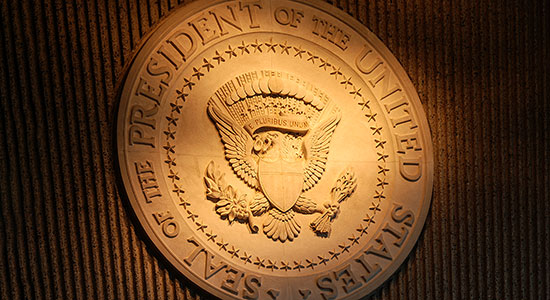On the Radar
Personal Conviction Vaccination Waivers – On the Way Out?

A bill pending in the Wisconsin Legislature would eliminate the ability to waive the vaccine immunization requirements for students on the basis of personal conviction.
According to the National Conference of State Legislatures, 45 states grant religious exemptions and 15 states, including Wisconsin, allow waivers for families who object based on personal, moral, or other beliefs. In Wisconsin, schools can exclude a student who does not present a waiver.
The bill proposes to eliminate the personal conviction waiver. Currently, vaccines for mumps, measles, rubella, diphtheria, whooping cough, poliomyelitis, tetanus, and any other diseases the Department of Health
Services specifies by rule can be waived.
Got a Nugget to Share?
Send your ideas for interesting facts, trends, tips, or other bits and bytes to wislawmag@wisbar.org, or comment below.
By the Numbers
30

– The number of continuing legal education (CLE) credits lawyers can obtain through on-demand CLE programs through the rest of 2020, under a temporary order issued by the Wisconsin Supreme Court. The temporary rule does not apply to ethics and professional responsibility credits.
At the request of the State Bar of Wisconsin, the court issued the order in March to provide more online CLE options amid the coronavirus pandemic.
Under normal rules, lawyers are limited to 15 on-demand credit hours per two-year reporting period.
The remainder must be obtained through in-person seminars or live webcasts (or teaching, writing, or pro bono).
On-demand programs are prerecorded and may be accessed and watched anytime.
Lawyers reporting for the 2019-20 reporting period can obtain up to 30 credits on demand, instead of 15 credits.
Looking for on-demand credits? State Bar of Wisconsin Marketplace has a vast library of on-demand programming.
Tech Tip
Governmental Agency Warns of COVID-19 Related Scams

The Cybersecurity and Infrastructure Security Agency (CISA) has created a dedicated webpage (www.cisa.gov/coronavirus) to help the nation address cybersecurity threats related to COVID-19. CISA recently issued a COVID-19 Cyber Alert encouraging individuals to remain vigilant and observe the following precautions.
-
Avoid clicking on links in unsolicited emails and be wary of email attachments. See Using Caution with Email Attachments and Avoiding Social Engineering and Phishing Scams for more information.
-
Use trusted sources – such as legitimate, government websites – for up-to-date, fact-based information about COVID-19.
-
Do not reveal personal or financial information in email, and do not respond to email solicitations for this information.
-
Verify a charity’s authenticity before making donations. Review the Federal Trade Commission’s page on Charity Scams for more information.
-
Review CISA Insights on Risk Management for COVID-19 for more information.
If you have additional questions on how to protect your practice from cybersecurity threats, contact the State Bar of Wisconsin Practice411™ program for a confidential consultation by calling (800) 957-4670.
Good Idea
Guidance on Remote Notarization; Execution of Estate Planning Documents

In March, the State Bar of Wisconsin received many questions about the ability to notarize and execute legal documents, such as real estate documents, wills, and other estate planning documents, in light of the coronavirus pandemic.
An article, approved by the E-Notarization Committee of the State Bar’s Real Property, Probate & Trust Law Section, provides guidance. Click here to read the article, or visit the State Bar’s COVID-19 Response page.
In short, lawyers cannot do testamentary documents with remote notarization, whether that notary is in state or out of state. Lawyers can do real estate documents with remote notarization, but only if the notary is out of state.
A new law that allows remote notarization, 2019 Wisconsin Act 125, allows remote notarization but it does not take effect until May 1, 2020, and it does not apply to estate planning documents, such as wills, trusts, and powers of attorney.
Emergency guidance issued by the Wisconsin Department of Financial Institutions (DFI) allows remote notarization of certain documents effective now, but the emergency rule still does not authorize remote notarizations for estate planning documents.
The DFI issued a revised version of the emergency rule on March 20, 2020, at the request of the State Bar, removing language that suggested remote notarizations could be performed for estate planning documents.
Finally, remote notarization is different than other execution requirements that help to ensure a document is valid, such as the witnessing of a will. The remainder of the article goes into more details on these issues, and will be updated as needed.
Quotable
“If and when the smoke clears from this emerging coronavirus pandemic, we will have to find creative solutions, both medical and legal, to support more effective prevention and treatment.”

– Derrick Blakely, in an article for the ABA Journal last month.
Blakely said lawyers, particularly healthcare lawyers, can play a large role in helping to prevent a similar pandemic in the future.
“Hopefully, in the end, our population and government have learned powerful lessons about the need for the existence of vital government agencies, preparation, proper funding, education at the community level, and more effective ways to share open-minded dialogue and perspectives about the potential dark side of nature that results in pandemics that start halfway across the globe and quickly arrive at our doorsteps,” he wrote.
From the Archives
Wartime Powers Act Invoked to Combat Coronavirus

President Donald J. Trump in March, invoked his expanded authority under the Defense Production Act of 1950 (DPA) to address the spread of the novel (new) coronavirus known as SARS-CoV-2 and COVID-19 (the disease caused by SARS-CoV-2).
Congress and President Harry Truman enacted these war-time powers during the Korean War to address the threat of communism.
The law allows the president “to require that performance under contracts or orders (other than contracts of employment) that he deems necessary or appropriate to promote the national defense shall take priority over performance under any other contract or order. [A]nd, for the purpose of assuring such priority, to require acceptance and performance of such contracts or orders in preference to other contracts or orders by any person he finds to be capable of their performance.”
It also allows the president “to allocate materials, services, and facilities in such manner, upon such conditions, and to such extent as he shall deem necessary or appropriate to promote the national defense.”
Source: 50 U.S.C. § 4511
